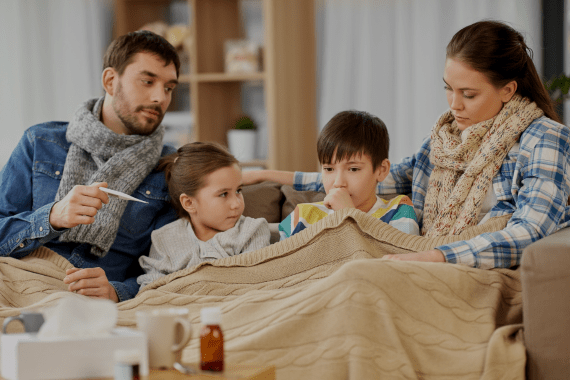Owen Wiseman
Medical Advisor
It’s no secret that men’s mental health needs a conversation. Around the world, men are under pressure from work expectations and social dynamics, and yet, they’re far less likely to seek help, report symptoms of mental health, or even talk to a friend about their struggles.1 There is a constant pressure to “keep it together.” Much of this gap stems from how Canadian society is conditioned to think about masculinity, linking strength with stoicism and weakness with vulnerability. The stigma can become a powerful barrier to getting help.
Most importantly, what can we collectively do about it?
The Hidden Cost of Isolation
When stress goes unchecked, it often leads to isolation, pulling guys away from their routines, relationships, and even their own self-confidence. It may start small with a skipped lunch or a few nights of rough sleep, but it can quietly snowball.
While women often maintain emotionally supportive relationships throughout their lives to buffer these periods, research shows that men are often more likely to rely on their ‘other half’ as their primary (and sometimes only) emotional confidant.1,2 They typically have fewer close friends they can turn to, leaving them stranded in a sense after a breakup.
These men who experience social isolation are more likely to suffer from a range of issues including depression, substance abuse, and even cardiovascular problems. Even the risk of death linked to loneliness is on par with smoking 15 cigarettes a day or having six drinks.3 Despite this info, many folks struggle to admit they’re lonely at all. Older men especially tend to under-report feelings of loneliness and typically describe physical symptoms or coping with increased use of alcohol.2
Why is it So Hard to Talk About It?
The truth is nuanced in that men aren’t lacking the desire to connect, they often feel they lack permission. Societal expectations can discourage emotional expression, making it difficult to say, “I need help.” The pressure makes it more likely for stress to show up physically. Think irritability, poor sleep, tight shoulders, or even a tendency to ‘shut down.’
In one Canadian study, men with no personal experience of depression were more likely to describe those who struggle as “weak,” or “irresponsible.” Even among men who had faced mental health issues themselves, many still felt ashamed to reach out for help.4
Shifting Our Mindset
Whether on podcasts, social media, or radio, the new message is reframing vulnerability as strength. Talking about mental health and recognizing emotional awareness as something worth pursuing lays the foundation of connection and growth. Granted, these large cultural shifts can take years, sometimes decades.
A Simple Step Towards Daily Support
In the meantime, not every guy is ready to dive into therapy. And that’s okay! Sometimes, the first step is much smaller and involves recognizing when stress is building and reaching for something that helps restore a sense of calm.
For guys looking to stay sharp and steady, their daily habits matter. That could mean a workout in the morning, maybe taking a walk with the kids after work, or using a fast-acting support like Relax Spray to stay collected in those stressful moments sprinkled throughout the day. Made with lemon balm, passion flower, and zinc, it helps take the edge off. It’s also subtle enough to use before a meeting or social event.
It’s About Prevention
Mental health care is often reactive, and we respond to folks already feeling like they’re on the precipice of burnout. But prevention matters. We stretch before practice or a game to prevent injuries, and we also floss (sometimes) and brush our teeth to avoid cavities. The same goes for managing our stress and emotional health.
Incorporating small, daily habits like movement, using Relax Spray, downtime from screens, and phoning a friend, can help the men in our lives build a stronger foundation.
References:
1. Nordin, Therese, Frida Degerstedt, and Elin Granholm Valmari. "A Scoping Review of Masculinity Norms and Their Interplay With Loneliness and Social Connectedness Among Men in Western Societies."American Journal of Men's Health18.6 (2024): 15579883241304585.
2. Ratcliffe, John, Paul Galdas, and Mona Kanaan. "Older men and loneliness: a cross-sectional study of sex differences in the English Longitudinal Study of Ageing."BMC Public Health24.1 (2024): 354.
3. Xia, Ning, and Huige Li. "Loneliness, social isolation, and cardiovascular health."Antioxidants & Redox Signaling28.9 (2018): 837-851.
4. McKenzie, Sarah K., et al. "Men’s experiences of mental illness stigma across the lifespan: a scoping review."American Journal of Men's Health16.1 (2022): 15579883221074789.













